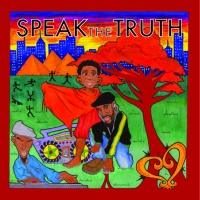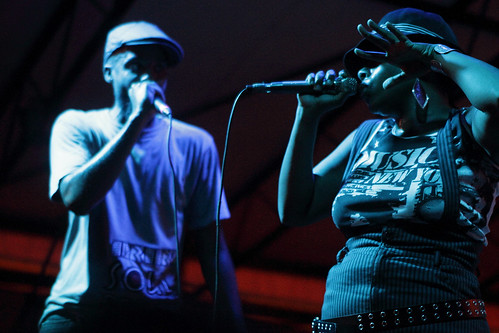For the next 348 days, I will be writing entries under the title, ‘I AM TROY DAVIS.’ Moved to pick up the pen not merely by Troy Anthony Davis‘ death/execution, but more so by his life/evolution, I hope that there are those out there who can relate. If so, we must connect. We are already connected. Axé.
It’s heavy how quickly things change. Or, maybe, it’s just heavy when you actually sit and realize how much things have changed. I don’t want to be overly-sentimental because I feel that this energy is very much related to becoming ‘old.’ And, even though I don’t consider myself old, I am starting to realize how much of a musical blessing my childhood really represented when compared to the current generation.
We (those of us raised in the 80s) were truly blessed to come from a generation that was influenced by the Civil Rights and Black Power movements of the 60s and 70s. The records (yes, vinyl) that our parents played when their friends came over to hang out were Earth, Wind, and Fire, Parliament Funkadelic, James Brown, Grover Washington, Jr., Sly and the Family Stone, Anita Baker, Luther Vandross, Herbie Hancock, anything Motown, basically music with a heartbeat/soul to it. It made you feel good. It made you proud. It gave you a place in the world.
Even though we were all on Michael Jackson, New Edition/Bobby Brown, Bell Biv Devoe (BBD), and more – deep down – we still had an appreciation for that ‘old stuff’ our parents played. Being young (11 years old) in 1988, I was quick to move from artist to artist, as groups and songs got ‘played out,’ but I vividly remember being surrounded by an incredibly diverse spectrum of voices, each offering a different aspect of our Black experience. There weren’t a lot of outlets to hear these voices, so daily, we waited for BET’s Rap City, and magazines like Word Up, and The Source to find out about what was new and hot.
This is ‘back in the day’ when rap music wasn’t getting big Puff Daddy/Hype Williams budgets, or much respect as a genre at all. RUN D.M.C. let corporations know that rap could profit, but the formulas weren’t in place for the creation of a rap mega/superstar. M.C. Hammer came on the scene and changed all of that in ’88. Dancing, and rapping hard, with an enormous stage show, Hammer took rap music to the charts in a major way.
Even though Hammer caught a lot of backlash for ‘crossing-over,’ his music was heavily dance-oriented like many hip hop groups in that day. Watch the videos from that time, and you will see rappers, from Big Daddy Kane down to Digital Underground, dancing harder than a krump dancer on an electrified dance floor. The party was part of the music; and our music reflected a vibrant, positive energy.
Enter the ‘Overweight Lover’ Heavy D. He was a large (no pun intended) piece of this musical puzzle. His songs were positive. His lyrics were smooth. His outfits were bright. His music made you dance hard and feel good. When his videos came on Yo! MTV Raps, or Rap City, there was absolutely no shame in getting up off the couch and jumping around in your socks like your feet were on fire. That’s just what it made you feel like doing. Your parents (if they were around) looked at you crazy as hell, but you didn’t care.
You just wanted to feel that energy. There was something natural in the music that made you smile and pump your body. There was no other way to go, but haaaaard. Mama said knock you out!
I am thankful for this musical legacy because it left an imprint on my spirit. It gave those of us that listened a chance to get free, and open, in a way that today’s music doesn’t. The soul of Dwight Arrington Myers, otherwise known as Heavy D, shined through the darkness. It wasn’t that times weren’t hard then. It was just that Heavy, and a whole bunch of others, chose to rhyme through these times with a little something to free us from our daily reality. And this was cool.
Today, cool means you don’t smile. Most of today’s pop-rappers are overly- obsessed with what designer they are wearing, how much weed they smoked, how much liquor they sipped, how many women they touched, and how much their chain sparkles. Cool means you just don’t give a f##k. And, we can’t blame the rappers either. They learned to be ‘all about the benjamins’ in a world where ‘money ain’t a thing’ because ‘cash rules everything around me.’
Capitalism rules. And today’s rap audience doesn’t hunger to party the same way we once did. It’s heavy. Things change.
It’s not that we didn’t want money or fame in Heavy’s day. But, we also wanted more than that. We wanted to be respected on our terms. Respect today is dictated by numbers on youtube, record sales, and blog hype. Artists come and go a lot faster. And the music? Well, it is what it is: a product to be consumed.
Thank you Heavy D. Your positive energy and vibration lives on in us. We remember that music is more than a hustle/game. Life can be a hustle for sure, but it is also beautiful. The music you made reminded us of our better selves, expressing a deeper love that is missing today. Missing, but never forgotten. Axé.
My name is Jonathan ‘Jbro Mpeanaji’ Mahone, and I am one-half of (RAS) Riders Against the Storm. I AM TROY DAVIS.







I will miss HEAVY D. RIP MUCH LOVE!
Pingback: New Jack Swing Heavy D Tribute at Body Rock December 2nd « Dj Chorizo Funk